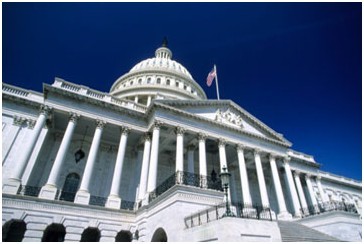

In American politics, "lobbyist" has always been a dirty word. During the Republican primary campaign of 2012, Newt Gingrich fervently denied that his Capitol Hill consulting work qualified him as a lobbyist [source: Schlesinger]. Since 1876, Congress has required all professional lobbyists to register with the Office of the Clerk of the House of Representatives. But since most D.C. insiders will go to great lengths to avoid being branded with the scarlet "L," the government has had to impose a strict definition of who is and who isn't a lobbyist.
According to the Lobbying Disclosure Act of 1995, and amendments made by the Honest Leadership and Open Government Act of 2007, a professional lobbyist is someone who:
Is paid by a client
Whose services include more than one lobbying "contact" (an elected official or members of their staff)
Whose lobbying activities constitute 20 percent or more of his time on behalf of that client during any three-month period [source: Office of the Clerk]
By that definition, there were 12,655 registered lobbyists in 2011, down from as high as 14,840 in 2007 [source: Center for Responsive Politics]. But that number leaves out folks like former Speaker of the House Gingrich, who leverages his network of political influence on behalf of clients who pay his health care consulting firm $200,000 to become "members," not clients [source: McIntire].
Gingrich is far from alone. In fact, the list of registered and unregistered lobbyists on Capitol Hill includes a large number of former elected officials and their staffers. In D.C., it's called the "revolving door" -- elected officials leaving the public service and going directly into lobbying. The New York Times counts more than 400 former legislators who have worked as lobbyists in the past decade [source: The New York Times]. Former politicians make effective lobbyists because of their personal contacts in the government and their expertise on key legislative issues.
As the legal definition suggests, lobbyists are paid by clients to meet with lawmakers and push the client's political agenda. Despite their bad reputation, lobbyists are not exclusively employed by big business. Every large organization has lobbyists roaming the halls of Capitol Hill, including Greenpeace, Catholic nuns and the Girl Scouts of America [source: Cook].
That said, not every organization has the same lobbying budget. According to the Center for Responsive Politics, the following organizations have spent the most money on lobbying efforts from 1998 to 2012:
U.S. Chamber of Commerce ($857 million)
American Medical Association ($269 million)
General Electric ($268 million)
Pharmaceutical Researchers and Manufacturers of America ($219 million)
American Hospital Association ($219 million)
AARP ($214 million)
Blue Cross/Blue Shield ($184 million)
National Association of Realtors ($184 million)
Northrop Grumman ($176 million)
Exxon Mobil ($173 million)
It's hard to imagine how it makes economic sense for a company like defense contractor Northrop Grumman to spend $176 million just to bend the ears of Congressmen. But a quick Google search shows a $189 million contract awarded to Northrop Grumman in March 2012 for a new cybersecurity system for the Department of Defense. Then NATO signed a $1.7 billion contract with Northrop Grumman in May 2012 to build five unarmed surveillance drones. Good lobbying, it turns out, is a great investment.



















